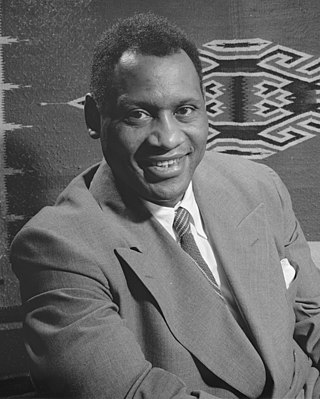
Paul Leroy Robeson was an American bass-baritone concert artist, stage and film actor, professional football player, and activist who became famous both for his cultural accomplishments and for his political stances.
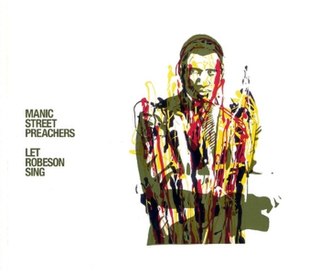
"Let Robeson Sing" is a song by Welsh alternative rock band Manic Street Preachers. It was released in September 2001 by record label Epic as the fourth and final single from their sixth studio album, Know Your Enemy. It reached number 19 in the UK Singles Chart.
"Ol' Man River" is a show tune from the 1927 musical Show Boat with music by Jerome Kern and lyrics by Oscar Hammerstein II. The song contrasts the struggles and hardships of African Americans with the endless, uncaring flow of the Mississippi River. It is sung from the point of view of a black stevedore on a showboat, and is the most famous song from the show. The song is meant to be performed in a slow tempo; it is sung complete once in the musical's lengthy first scene by the stevedore "Joe" who travels with the boat, and, in the stage version, is heard four more times in brief reprises. Joe serves as a sort of musical one-man Greek chorus, and the song, when reprised, comments on the action, as if saying, "This has happened, but the river keeps rolling on anyway."

John Paul Hammond is an American singer and musician. The son of record producer John H. Hammond, he is sometimes referred to as John Hammond Jr.
"Come Rain or Come Shine" is a popular music song, with music by Harold Arlen and lyrics by Johnny Mercer. It was written for the Broadway musical St. Louis Woman, which opened on March 30, 1946, and closed after 113 performances.
At Carnegie Hall may refer to:

"Ballad for Americans" (1939), originally titled "The Ballad for Uncle Sam", is an American patriotic cantata with lyrics by John La Touche and music by Earl Robinson. It was written for the Federal Theatre Project production, Sing for Your Supper that opened on April 24, 1939. Congress abolished the project on June 30, 1939. The "Ballad of Uncle Sam" had been performed 60 times.
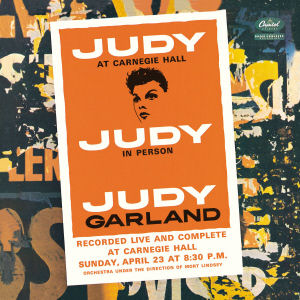
Judy at Carnegie Hall is a double-LP live recording of a concert by Judy Garland at Carnegie Hall in New York, with backing orchestra led by Mort Lindsey. This concert appearance, on the night of Sunday April 23, 1961, has been called "the greatest night in show business history".
"The Gypsy in My Soul" is a popular song written for the 50th anniversary of the University of Pennsylvania Mask and Wig show in 1937 by two Penn graduates, Clay Boland and Moe Jaffe. Boland wrote the music and Jaffe the lyrics. Although both men had long since graduated, it had become the practice at the time for professionals, rather than students, to compose songs for the show.

"Waterboy" is an American traditional folk song. It is built on the call "Water boy, where are you hidin'?" The call is one of several water boy calls in cotton plantation folk tradition.

"Sometimes I Feel Like a Motherless Child", also "Motherless Child", is a traditional Spiritual. It dates back to the era of slavery in the United States.

Belafonte at Carnegie Hall is a live double album by Harry Belafonte issued by RCA Victor. It is the first of two Belafonte Carnegie Hall albums, and was recorded on April 19 and April 20, 1959. The concerts were benefits for The New Lincoln School and Wiltwyck School, respectively. The album stayed on the charts for over three years.
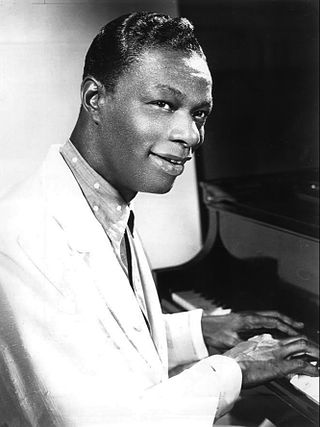
"Mona Lisa" is a popular song written by Ray Evans and Jay Livingston for the Paramount Pictures film Captain Carey, U.S.A. (1949). The title and lyrics refer to the renaissance portrait Mona Lisa painted by Leonardo da Vinci. The song won the Oscar for Best Original Song in 1950.
"I Can't Get Started", also known as "I Can't Get Started with You" or "I Can't Get Started (with You)", is a popular song. It was written in 1936 by Vernon Duke (music) and Ira Gershwin (lyrics) and introduced that year in the revue Ziegfeld Follies of 1936, where it was performed by Bob Hope and Eve Arden.
This is the discography of recordings by Duke Ellington, including those nominally led by his sidemen, and his later collaborations with musicians with whom Ellington had generally not previously recorded.

Taft Jordan was an American jazz trumpeter.

Ballad for Americans and Other American Ballads is an album by American folk singer Odetta. It was released in 1960.
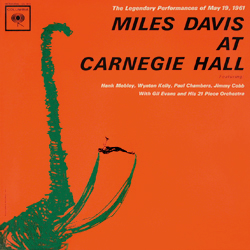
Miles Davis at Carnegie Hall is a live album by American jazz musician Miles Davis. Subtitled The Legendary Performances of May 19, 1961, it was originally released by Columbia Records in 1962.

The Glenn Miller Carnegie Hall Concert is a live album by Glenn Miller and his Orchestra. It documents a live concert recorded in Carnegie Hall in 1939. The album was released by RCA Victor in 1958.
The following is the discography of American singer Paul Robeson.













